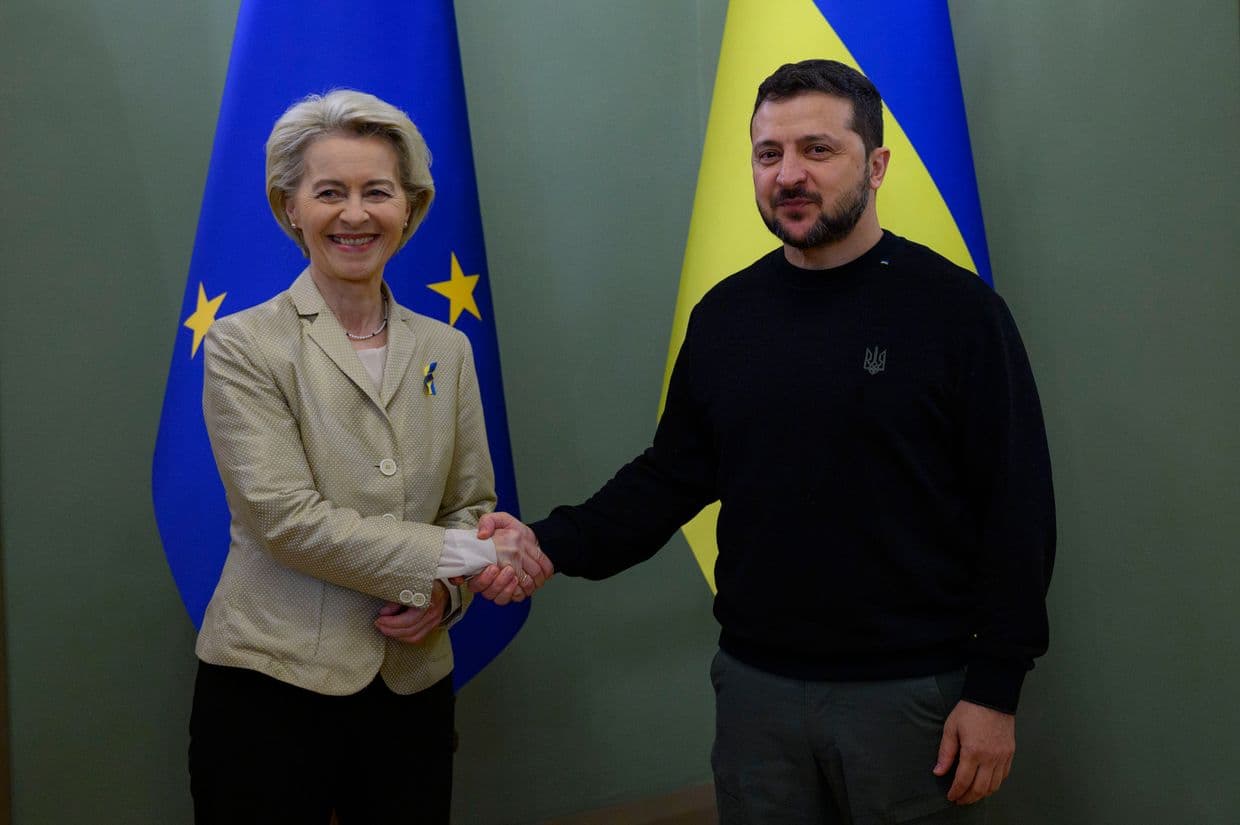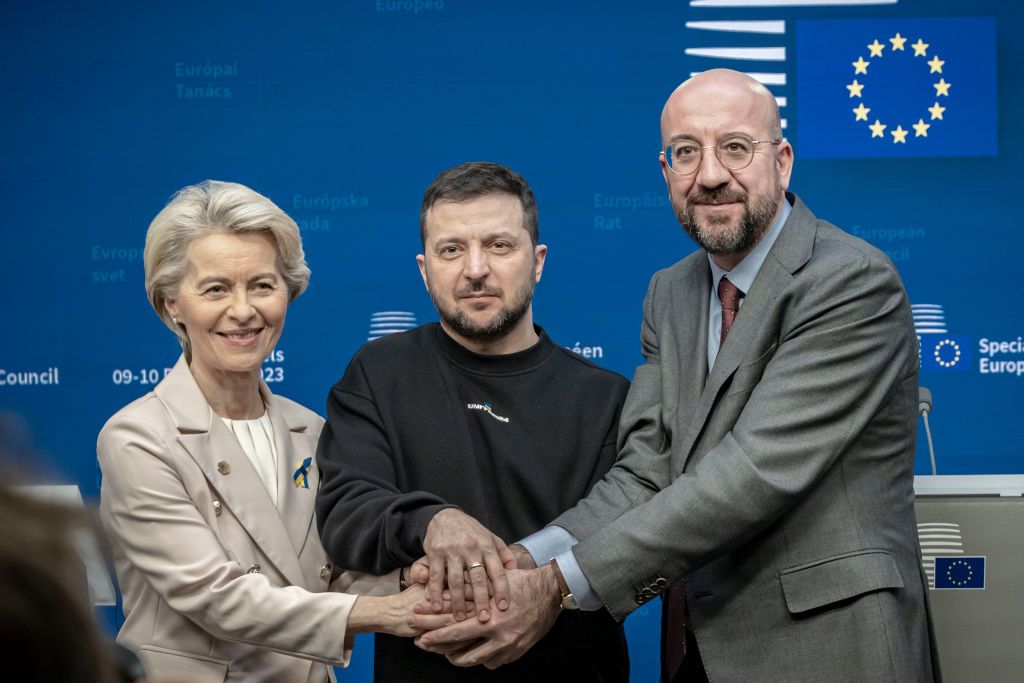BREAKING: European Commission recommends Ukraine, Moldova begin EU accession talks

Editor's note: This is a developing story that will continue to be updated.
Ukraine and Moldova received recommendations to begin formal negotiations on their accession to the European Union, and Georgia received a recommendation to get candidate status, European Commission President Ursula von der Leyen announced on Nov. 8.
“Today is a historic day, because today the Commission recommends that the council opens accession negotiations with Ukraine and with Moldova," Von der Leyen said. "Ukraine has completed...well over 90% of the necessary steps that we set out last year in our report."
The talks should begin next year.
"Today, the history of Ukraine and the whole of Europe has taken the right step," said President Volodymyr Zelensky. "Ukrainians have always been and remain part of our common European family. Our country must be in the European Union."
Zelensky also said that Ukraine expects a decision from the European Council in December.
The European Commission's decision marked a "long-awaited recognition of Ukraine's progress towards EU membership," wrote Ruslan Stefanchuk, Chairman of the Verkhovna Rada, Ukraine's parliament.
"We have a lot of work ahead of us to adapt national legislation to EU law. But this work is our strategic goal, which was set by the people of Ukraine," he added.
Prime Minister Denys Shmyhal expressed his gratitude to Ukraine's European partners and thanked them for their high regard for Ukraine's progress.
Katarina Mathernova, the EU's Ambassador to Ukraine, also welcomed the decision in an exclusive interview with The Kyiv Independent. (Editor's note: The interview will be published later on Nov. 8.)
"It's amazing news, and we've come together a tremendously long way. Honestly, to do this kind of difficult reform in such a short period of time, and during fighting a full-scale war is amazing," Mathernova said.
Ukraine officially applied for EU membership in late February 2022, just following the beginning of Russia's full-scale invasion.
The country was granted candidacy status in June and presented with seven criteria it needs to fulfill in order to begin the talks.
According to the report released by the European Commission on Nov. 8, Ukraine has fully implemented four of the seven criteria:
- The adoption of legislation on a selection procedure of judges of the Constitutional Court in line with Venice Commission recommendations;
- The completion of the integrity vetting of candidates for the High Council of Justice members and the creation of the High Qualification Commission of Judges of Ukraine;
- The alignment of anti-money laundering legislation with the standards of the Financial Action Task Force (FATF) and approval of a strategic plan for reforming the entire law enforcement sector;
- The alignment of Ukraine's media legislation with the EU audio-visual media services directive.
The three remaining criteria — the fight against corruption, de-oligarchization, and the protection of national minorities — are not yet fully implemented, the European Commission wrote.
Nonetheless, significant progress has still been made.
In regards to corruption, the report noted that Ukraine has "further developed its track record" and is on track to double the number of indictments on corruption charges from previous years.
Anti-corruption agencies have continued to improve, but the report recommended that the staff of the National Anti-Corruption Bureau of Ukraine (NABU) be increased and impediments to the effectiveness of the National Agency on Corruption Prevention (NACP) be removed.
Ukraine has introduced systematic measures to curb the influence of oligarchs, the report said, including new legislation that tackles monopolization and mandated financial reporting on donations to political parties.
Minority protection has also improved, but there are still gaps when it comes to ensuring the linguistic autonomy of Ukraine's minorities, the report said. In order to fulfill this criteria, Ukraine should strengthen its language laws that protect minority rights in education and media.
In addition, Ukraine's approach towards the protection of Roma rights currently falls short of EU recommendations, although it has made improvements since an integration action plan was adopted in 2021.
According to Mathernova, "the recommendation clearly states that Ukraine has sufficiently fulfilled the seven steps for the commission to recommend the opening of negotiations."














